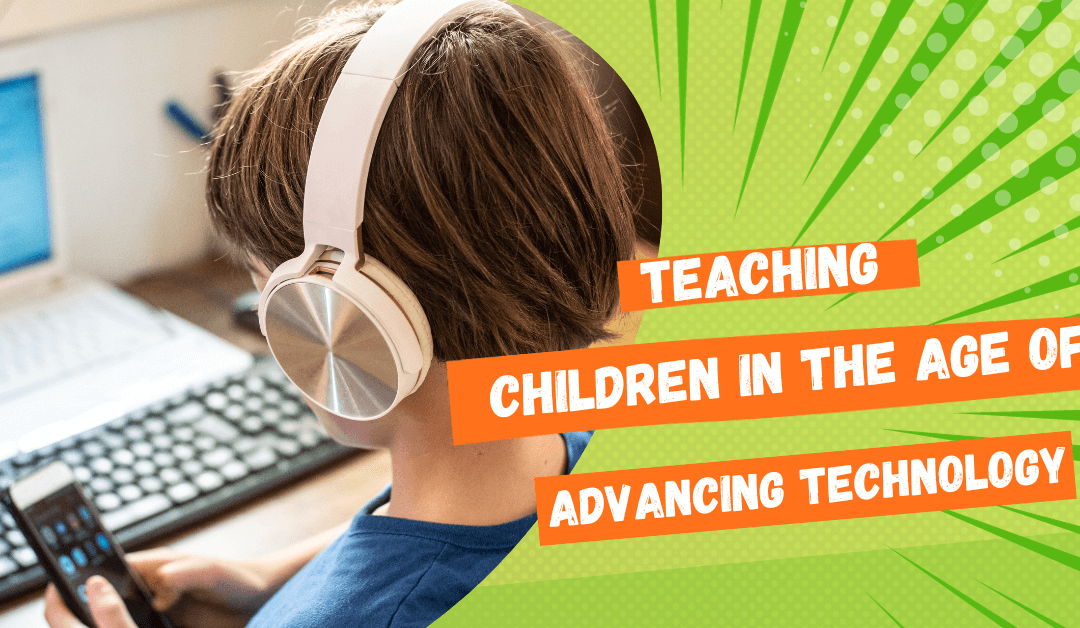
by admin | Jun 19, 2023 | Uncategorized
In this digital age, teaching children effectively amid evolving technology is a challenge for parents and educators. However, by leveraging the right approach and tools, we can harness technology’s power to create engaging and educational experiences for young minds. Club Baby, an innovative educational platform that utilizes games and worksheets, is an excellent example.
Let’s delve into how we can effectively teach children in this age of advancing technology.
Interactive Learning:
Children thrive in interactive environments, driven by their innate curiosity. Traditional teaching methods often fail to captivate their attention and foster a love for learning. Incorporating technology allows us to create dynamic and immersive learning experiences. Several educational platforms combine fun games and engaging worksheets, delivering educational content interactively. This approach enhances information retention and motivates children to explore and grasp new concepts.
Personalized Learning:
Every child is unique, possessing distinct learning styles and paces. Technology enabled personalized learning experiences tailored to each child’s individual needs and interests. Adaptive learning algorithms in educational platforms that analyze a child’s performance and adapt the content accordingly. By customizing lessons and activities to match a child’s proficiency level, strengths, and weaknesses, we can provide targeted instruction that maximizes learning outcomes.
Multisensory Learning:
Children learn through multiple senses, and technology provides a platform for engaging them in multisensory experiences. Educational apps and tools can incorporate visual, auditory, and tactile elements, creating a holistic learning environment. For instance, Club Baby’s interactive games utilize vibrant visuals, sound effects, and touch-based interactions, stimulating various senses. By catering to different learning styles, we enhance comprehension and ensure a well-rounded educational experience.
Collaboration and Communication:
Technology facilitates collaboration and communication on a global scale, breaking down geographical barriers. Children can connect with peers from different parts of the world, fostering cultural understanding and promoting teamwork.
Balancing Screen Time:
While technology brings tremendous benefits, it’s crucial to strike a balance between screen time and other activities. Excessive screen time can lead to sedentary behavior, hindering real-world experiences. As responsible parents and educators, we must establish guidelines and encourage a healthy balance. Club Baby, for instance, provides a diverse range of activities that extend beyond the screen, including printable worksheets and games. By combining digital and offline activities, we ensure a well-rounded and balanced approach to learning.
In the age of advancing technology, teaching children requires embracing the available digital tools. By leveraging interactive and personalized learning experiences, incorporating multisensory elements, fostering collaboration, and promoting a healthy balance, we can effectively educate young minds. Platforms like Club Baby exemplify the potential of technology in education, offering engaging games and worksheets that make learning enjoyable for children. As we navigate the digital landscape, let’s harness technology’s power to nurture young minds and empower them for a future increasingly shaped by technological advancements.
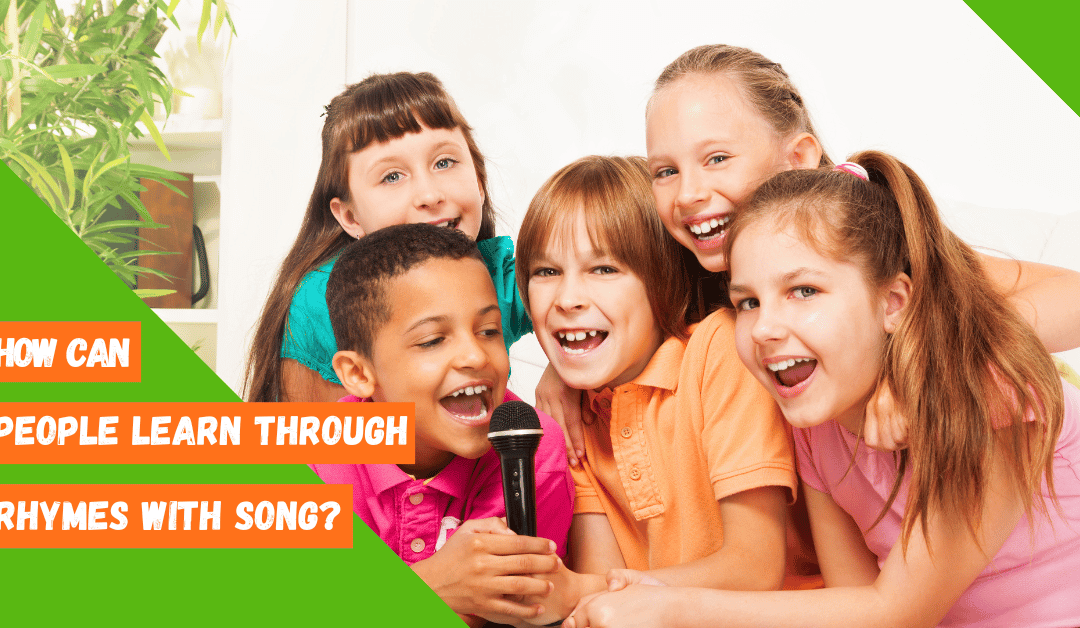
by admin | Mar 10, 2023 | Uncategorized
Rhyming with song is an excellent way for people to learn and retain new information. By combining education with music, people can absorb the material in a fun and engaging way. This learning method has been used for centuries, and there’s a good reason why it has stood the test of time. In this blog, we’ll explore the benefits of learning through rhymes with song and how you can access educational songs online.
Learning through Rhymes with Songs
First, let’s talk about the benefits of learning through rhymes with songs. When information is presented in a musical format, it becomes easier for the brain to process and remember. The repetitive nature of rhymes and songs helps people retain information more efficiently. Research has shown that people are more likely to remember information when it is paired with a musical tune or rhythm. This is because music activates different areas of the brain that help process and store information.
Another advantage of learning through rhymes with songs is that it can make the material more fun and enjoyable. People are more likely to stick with a task if they find it enjoyable, and music is a great way to add some fun to the learning process. Additionally, when people are having fun, they are more likely to be engaged and focused, which helps them absorb the information more effectively.
Now that we’ve talked about the benefits of learning through rhymes with song, let’s talk about how you can access educational songs online. There are many online platforms that offer educational songs for a variety of subjects, including math, science, history, and more. One such platform is Club Baby, which is an online platform that provides educational songs for children. These songs are designed to help children learn about various topics in a fun and engaging way. Club Baby has a wide variety of songs that are appropriate for different age groups and skill levels, so you’re sure to find something that suits your needs.
In conclusion, learning through rhymes with song is a fun and effective way to absorb and retain new information. By combining education with music, people can engage with the material in a more enjoyable way, which helps them remember it better. If you’re looking to try this learning method, there are many online platforms that offer educational songs, such as Club Baby and YouTube. So why not give it a try and see if learning through rhymes with song can help you learn and retain information better.
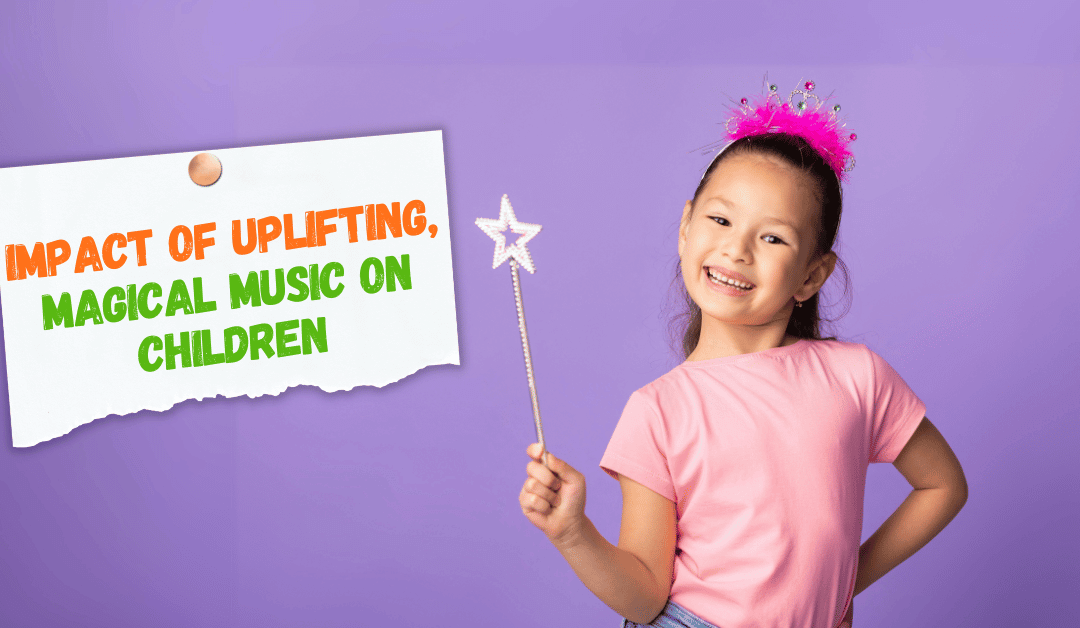
by admin | Mar 10, 2023 | Uncategorized
Music has always been an important part of human life and it has a profound impact on our emotions, mental state, and overall well-being. The power of music to evoke emotions and create an atmosphere is especially pronounced in children. Children are naturally curious and imaginative, and music provides a magical and uplifting experience that can enhance their development in many ways.
In this blog, we will discuss the impact of magical music on children and why it is so important for their growth and happiness.
Emotional connection: Magical music has the power to evoke emotions in children, helping them understand and process their feelings in a fun and engaging way. It can also provide a sense of comfort and security during times of stress or anxiety.
Stimulation of imagination and creativity: Magical music can stimulate children’s imaginations and creativity, inspiring them to think outside the box, explore new ideas, and develop their storytelling skills.
Cognitive development: Listening to music can improve children’s memory and enhance their ability to learn new information, while musical training has been shown to improve their spatial reasoning skills.
Social skills: Listening to music is often a communal experience, and children can bond over their shared love for music. This can lead to the development of social skills such as empathy, cooperation, and teamwork.
Empowerment and self-esteem: Magical music can provide a sense of empowerment and self-esteem for children, inspiring them to believe in themselves and their abilities.
Incorporating magical music into a child’s life can provide a magical and uplifting experience that will positively impact their growth and happiness. Available on online platforms like Club Baby, educational songs in the form of rhymes with songs are an easy and fun way to incorporate music into a child’s life. So why not make music a part of your child’s routine and watch as they soar to new heights of imagination and creativity?
FAQ’s
What is the impact of magical music on children’s emotions?
A: Magical music has the power to evoke emotions in children, helping them understand and process their feelings in a fun and engaging way. It can also provide a sense of comfort and security during times of stress or anxiety.
- How does magical music stimulate children’s imagination and creativity?
Magical music can stimulate children’s imaginations and creativity by inspiring them to think outside the box, explore new ideas, and develop their storytelling skills. Listening to magical music pieces can take children on a journey of their own, to a place where anything is possible.
- What is the impact of music on children’s cognitive development?
Listening to music can improve children’s memory and enhance their ability to learn new information. Musical training has also been shown to improve their spatial reasoning skills, which can be beneficial for their future academic and professional success. Magical music, with its otherworldly melodies and fantastical themes, can captivate a child’s attention and help them retain information in a more engaging and memorable way.
- How does music foster social skills in children?
Listening to music is often a communal experience, and children can bond over their shared love for music. This can lead to the development of social skills such as empathy, cooperation, and teamwork. Playing music as a group, such as in a school band or choir, can help children develop leadership skills, teamwork, and responsibility.
- What is the impact of magical music on children’s self-esteem and empowerment?
Magical music can provide a sense of empowerment and self-esteem for children, inspiring them to believe in themselves and their abilities. Listening to music can make children feel good about themselves, and learning to play an instrument or sing can give them a sense of pride and accomplishment. The themes of adventure, bravery, and overcoming obstacles in magical music can inspire children to be confident and believe in their abilities.
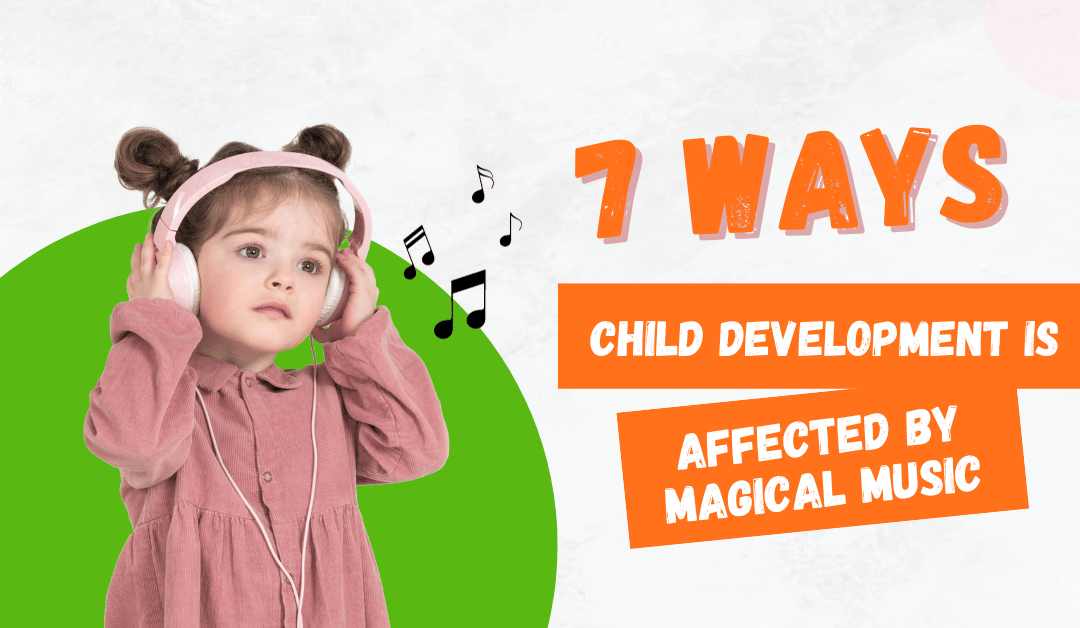
by admin | Mar 8, 2023 | Uncategorized
Music has the power to transport us to a different world, and it’s no different for children. From nursery rhymes to poems set to music, children are exposed to a magical world of sound and rhythm. But, did you know that these musical experiences can greatly impact a child’s development?
Here are 7 ways magical music can affect a child’s growth and well-being.
Magical Music and Child Development
Improves Cognitive Development: Studies have shown that musical experiences can improve a child’s cognitive development, including language skills and problem-solving abilities. Songs can help children learn language easier and more accurately with music, rhythm and songs.
Enhances Emotional Development: Music can also have a significant impact on a child’s emotional development. Rhymes and poems set to music can help children understand and express their emotions.
Boosts Memory and Attention Span: Regular exposure to music can help children build their memory skills and attention span, making it easier for them to focus and retain information. Catchy songs help children remember new words in fun and creative ways.
Encourages Creativity: Children who are exposed to music and songs from an early age are more likely to develop their creativity and imagination. This is why nursery rhymes and poems are such an important part of childhood.
Supports Language Development: Nursery rhymes and songs can help children build their language skills, by teaching them new words and sounds, and improving their pronunciation.
Fosters Social Skills: Singing and playing musical instruments with other children can help improve a child’s social skills and encourage teamwork.
Develops a Love for Music: Perhaps the most important way magical music can affect a child’s development is by instilling a love for music that will last a lifetime. When children enjoy singing and playing musical instruments, they are more likely to continue this love into adulthood.
In conclusion, musical experiences can greatly affect a child’s development in a number of ways. So, next time you sing a nursery rhyme or listen to a poem set to music, remember the magical impact it can have on a child’s growth and well-being.
If you want to introduce your children to inspiring, educational and lively songs, you should definitely check Club Baby!
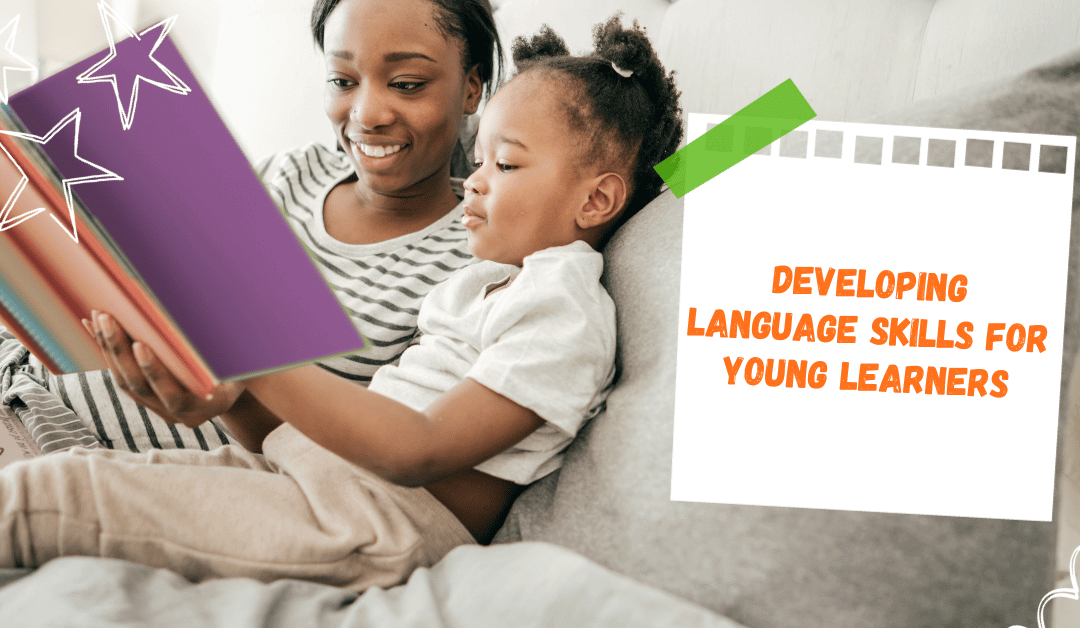
by admin | Feb 5, 2023 | Uncategorized
Learning language skills is an important part of a child’s development. For young learners, it is essential to start early and give them the best foundation for their future success in communication. Nursery rhymes are an ideal way to help children develop language skills through interactive teaching methods.
Nursery rhymes provide a fun and interactive platform that helps children learn new words through repetition, singing, and other activities which can foster their love of language from an early age. In this blog post, we’ll explore how nursery rhymes can be used to teach young learners essential language skills such as pronunciation, vocabulary building, sentence structure, grammar rules and even storytelling techniques!
With these tips, you can help your little one get the best start possible in their language development journey.
Language Skills for Young Learners
- Start with Rhyming Words: Rhyming words are a great way to teach young learners basic language skills like pronunciation and vocabulary. Start off by introducing simple one-syllable words such as “hat” and build up to more complex words like “hippopotamus” and “elephant”. As your child’s language skills progress, you can move onto nursery rhymes with more complex rhyming patterns.
- Introduce Sentence Structure: Nursery rhymes are also a great way to introduce young learners to sentence structure. Each nursery rhyme is structured around a specific pattern of words, syllables and sounds. By repeating the same pattern, you can help your child learn to identify the different parts of a sentence such as subject, verb, and object.
- Teach Grammar Rules: Nursery rhymes are also a great way to teach grammar rules to young learners. As your child learns to recognize the patterns of a nursery rhyme, they can start to identify the different parts of speech such as nouns, verbs, and adjectives. You can also help your child learn basic grammar rules such as using plural forms of nouns and using the correct verb tense.
- Develop Storytelling Skills: Nursery rhymes are great for developing storytelling skills in young learners. By introducing stories with a beginning, middle and end, you can help your child learn the basic elements of storytelling and help them develop their creative writing skills. The use of repetition and rhyme in nursery rhymes can also help to reinforce the story in your child’s mind and help them remember the story more easily.
By introducing nursery rhymes to your young learner, you can help them to develop essential language skills that will set them up for success in the future.
Page 1 of 812345...»Last »




